Lifestyle
How to accept being 'a fat person' and quiet your inner critic

As an only child who moved around a lot, Emma Specter learned to comfort herself, as a lot of kids do, with familiar foods — whether it was the Dunkin Donuts she sought out in Rome or the candy bars she stock-piled from Manhattan bodegas. By the time she entered high school, she’d begun using food as more than just a source of soothing, but as a kind of numbing agent she’d administer in secret. Mindlessly eating cookie dough to the point of physical discomfort, she discovered, could help ease the pain of life’s most unpleasant moments — that is, until the shame set in, followed by an urge to count calories.
Shelf Help is a new wellness column where we interview researchers, thinkers and writers about their latest books — all with the aim of learning how to live a more complete life.
Specter eventually came to identify this behavior as bingeing, an eating disorder she describes viscerally in her memoir, “More Pease: On Food, Fat, Bingeing, Longing, and the Lust for ‘Enough’” (HarperCollins). Bingeing can look different for different people, but for Specter, it involves “shoving food furtively into my mouth as quickly and passively” as possible, she writes. Her debut book, which pairs a deeply personal (and often humorous) narrative with academic research and journalistic inquiry, explores the origins of her disordered eating while also searching for a motive: “Why do I do this?” Specter said in an interview.
The Los Angeles-based Vogue culture writer is still trying to answer that question. In addition to lots of therapy and introspective writing, her process so far has been to interview writers, scholars and fat activists about diet culture and its societal underpinnings.
The Times spoke to Specter about how she realized she had an eating disorder, why she decided to ditch dieting and what happened when she began to reframe her thinking about her body.
This interview has been edited and condensed for clarity.
In your book, you describe how any sort of event in your life — no matter how big or small — could trigger a binge. What did this pattern look like for you and how did you recognize that it was part of a disorder?
I definitely was and still am more likely to binge on a bad day than a good one, but sometimes something very minor would go wrong and I would react by bingeing. When I’m in a bad mood or bored or lonely or tired, it’s hard for me to self-regulate without food. I think a lot of us use food for comfort and that doesn’t have to look like a disordered attachment. But for me, it was very much about shutting out the world with food.
I think that’s the tricky thing, too, is that obviously everyone eats food for survival, for comfort, for all of these things. Was there a moment where you recognized, ‘Oh, what I’m doing is maybe a little bit destructive,’ if that’s how you see it?
Absolutely, that is how I see it. When I was in my early to mid-20s, I started to recognize that something was off. A lot of things that I had desperately wanted came to fruition. I had jobs in media, I had a big group of friends, I came out [as queer], dating was better and more exciting, or at least existent. But I felt like there was this real disconnect where I started bingeing almost more once I had more in my life. I was more fulfilled and happy, but still bingeing and then realizing, ‘What function is this playing for me? And is it an escape when I’m feeling overwhelmed or scared or stressed about the stakes of my new life?’
Right. How do you work toward not relying on food so much as an escape from your feelings?
I’ve found a lot of beauty in communal meal-making and eating together with my partner and their roommates and my friends and just reminding myself that food can absolutely be this huge source of comfort when I’m feeling overwhelmed, and it doesn’t have to go along with solitude and hiding.
When I was in the diet-binge cycle that I was in for so long, I was very concerned about ‘How am I going to have a group dinner with friends and still stick to my Weight Watchers points?’ I’m thrilled to say that I haven’t dieted in a long time, but that lizard brain mentality is still with me sometimes telling me what I should and shouldn’t be eating or enjoying. The more that I can come together with other people around food, the less I feel like it has to be this solitary kind of respite that I only engage in in a disordered way.
So the journey you describe in the book is twofold: You’re recognizing that you’re bingeing and figuring out what’s behind it and how to manage it, but you’re also learning to abandon diet culture. Do you feel like those two things go hand in hand?
Absolutely. I do think giving up dieting was really crucial to getting to a place where I can just accept myself as a fat person. It was truly one of the most ingrained habits of my life to the point where — I think as so many people, and especially women — do, I still know the caloric value for foods and I’m trying to chase that out of my brain. It doesn’t hurt to know what’s in your food, but I’m trying to chase away the sense of “Oh, my god, this banana has so-and-so calories, I can’t have it.” I think saying goodbye to dieting has really been crucial in just accepting the body that I have now and not the body that I could have if I cut out carbs and worked out for two hours every day.
I was a little disappointed that quitting dieting didn’t fix my bingeing, which maybe should have been obvious to me because bingeing is a very ingrained habit that I’ve been engaging in over the course of my life. But part of me thought that if I’m not dieting anymore then I won’t ever have the urge to overindulge. It can be demoralizing to feel like I’m doing all this work [toward having a positive relationship with food] and still I find myself bingeing, but I think that’s just part of the balance — especially in the place that I’m at in my recovery, which centers very much around harm reduction. I’ve made a tenuous peace with the idea that bingeing is going to be a part of my life.
You write about your bingeing as a form of self-harm, about the way it caused you shame and embarrassment, nausea and indigestion. Could you talk about some of the other ways it affected and still affects your life?
Something I want to highlight is just the amount of money that I spent on binge food. Obviously it was not a ton — an individual binge could be a thing of ice cream, which costs $7, but that stuff adds up — and it’s not my favorite use of money. It’s not my favorite use of how to engage with the world and the economy, especially through the use of food delivery apps. Being dependent on somebody else’s precarious labor to bring you food you don’t even want doesn’t feel great and it isn’t the way that I want to engage with my community.
I also think for a long time, I felt like my consequences, for lack of a better word, were fatness. I remember at a certain point catching a glimpse of myself in the mirror after I gained weight and thinking, ‘Look what you’ve done to yourself.’ You know, just really unkind self thoughts that I try really hard not to harbor anymore, but they sneak in ‘cause we live in a fat-phobic society. But I do think it has been a really beautiful reframe to just be like, my body is not a negative outcome and it’s not a consequence of anything. It’s just my body and it can do a lot of incredible things.
TAKEAWAYS
from “More, Please”
Reading your book, it’s obvious that you didn’t arrive at body acceptance overnight, and that it’s still a work-in-progress. Can you talk about what has helped you become kinder to yourself along the way?
I can’t think of something that has had a bigger impact on me than having fat friends. Just being surrounded by fat people who love each other and are loved — which sounds so corny — but I just think it gives me a script every day for my own self-acceptance. I can’t overstate the importance of having fat community in my life, and I really hope that for every fat person.
I know that being fat can be tricky because it can often feel like it’s your rest stop on the road to thinness, but I have felt so deeply that if I want to live in my body happily as it is, I need to surround myself with other people who do that and who accept themselves and who still have difficult moments and who have journeys that I might not necessarily even know about because every single person is going through their own world and journey in their own meat suit.
What advice would you give to someone who wants to start re-evaluating their relationship with food or with their body?
Try not to be alone with it. “It” being your fear and your anxiety over what you’re eating or not eating or what your body looks like or doesn’t look like. Sometimes that means talking to people in your life, but I think people dealing with disordered eating and binge eating in particular can often feel so much shame that it’s really hard to start that conversation. In your Notes app or your Google Docs is as good as any place to start a conversation, even just with yourself while you’re figuring out what another level of help might look like for you.
I just hope, as corny as this sounds, that you’re as nice to yourself as you can summon the ability to be in the process of finding your version of therapy, or writing about your issues, or talking to your loved ones about what’s going on with you. None of that is possible without this little glimmer of self-compassion, and the self-compassion has to be first.
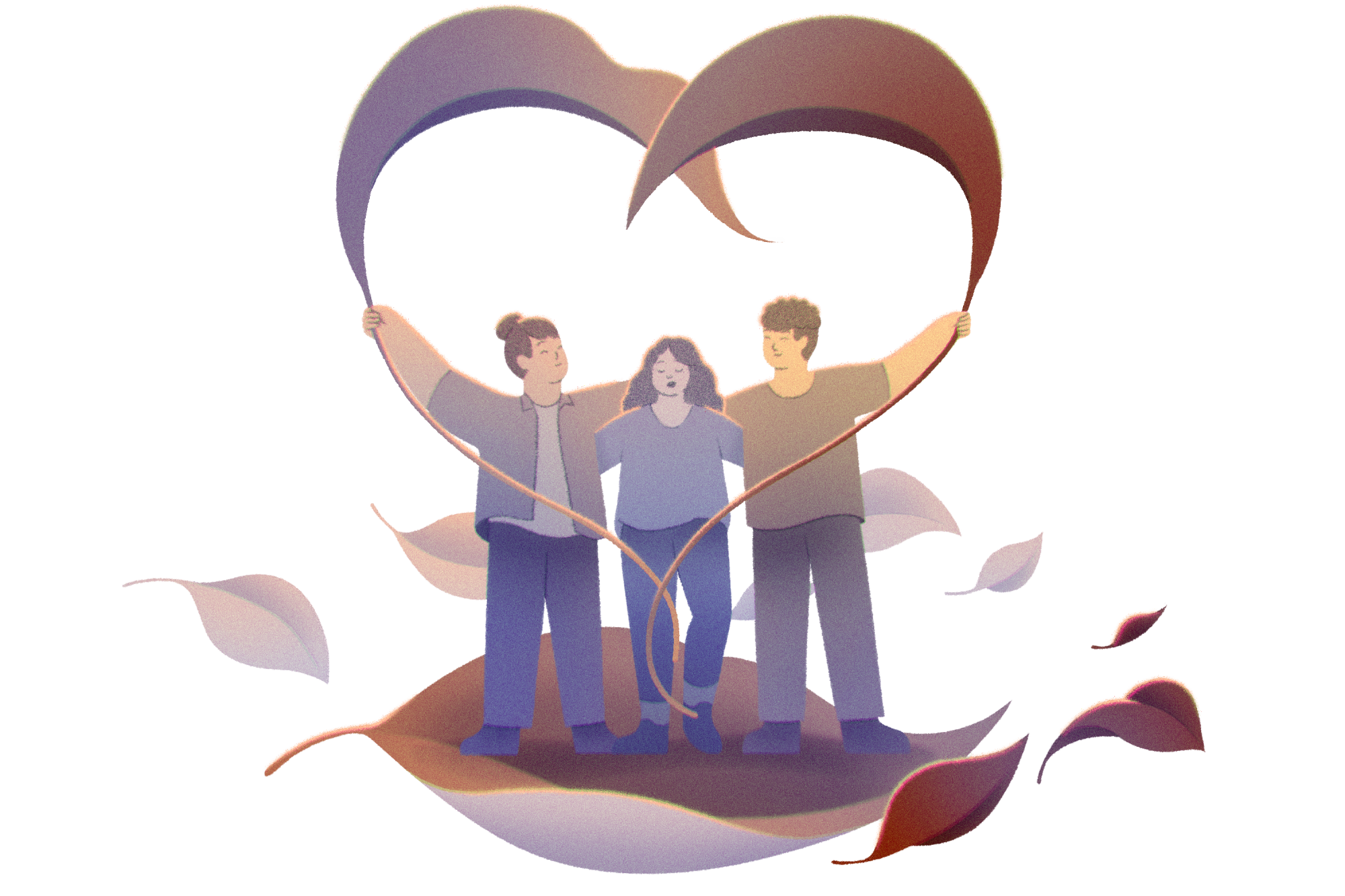
(Maggie Chiang / For The Times)
Shelf Help is a wellness column where we interview researchers, thinkers and writers about their latest books — all with the aim of learning how to live a more complete life. Want to pitch us? Email alyssa.bereznak@latimes.com.

Lifestyle
On the brink of death, a woman is saved by a stranger and his family
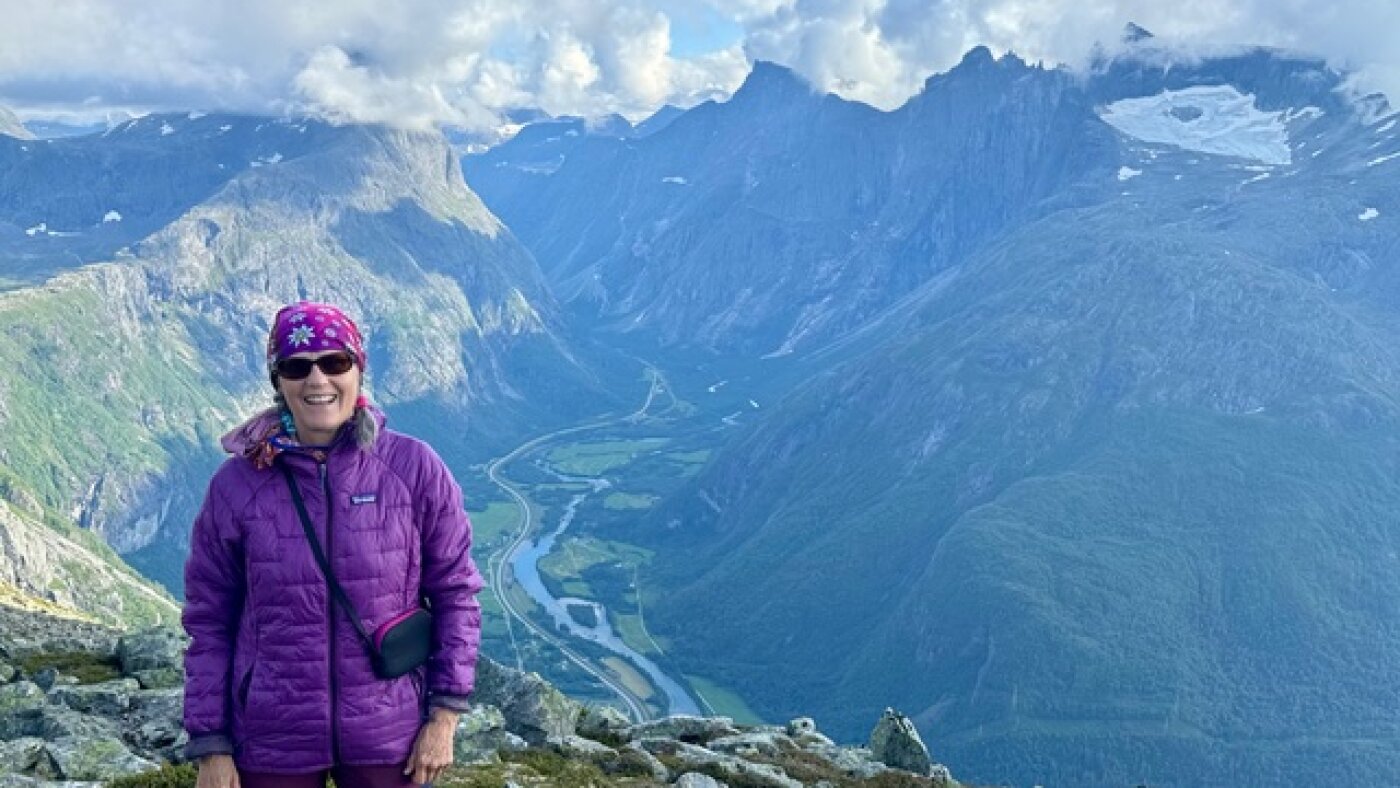
In 1982, Jean Muenchrath was injured in a mountaineering accident and on the brink of death when a stranger and his family went out of their way to save her life.
Jean Muenchrath
hide caption
toggle caption
Jean Muenchrath
In early May 1982, Jean Muenchrath and her boyfriend set out on a mountaineering trip in the Sierra Nevada, a mountain range in California. They had done many backcountry trips in the area before, so the terrain was somewhat familiar to both of them. But after they reached one of the summits, a violent storm swept in. It began to snow heavily, and soon the pair was engulfed in a blizzard, with thunder and lightning reverberating around them.
“Getting struck and killed by lightning was a real possibility since we were the highest thing around for miles and lightning was striking all around us,” Muenchrath said.
To reach safer ground, they decided to abandon their plan of taking a trail back. Instead, using their ice axes, they climbed down the face of the mountain through steep and icy snow chutes.
They were both skilled at this type of descent, but at one particularly difficult part of the route, Muenchrath slipped and tumbled over 100 feet down the rocky mountain face. She barely survived the fall and suffered life-threatening injuries.

This was before cellular or satellite phones, so calling for help wasn’t an option. The couple was forced to hike through deep snow back to the trailhead. Once they arrived, Muenchrath collapsed in the parking lot. It had been five days since she’d fallen.
”My clothes were bloody. I had multiple fractures in my spine and pelvis, a head injury and gangrene from a deep wound,” Muenchrath said.
Not long after they reached the trailhead parking lot, a car pulled in. A man was driving, with his wife in the passenger seat and their baby in the back. As soon as the man saw Muenchrath’s condition, he ran over to help.
”He gently stroked my head, and he held my face [and] reassured me by saying something like, ‘You’re going to be OK now. I’ll be right back to get you,’” Muenchrath remembered.
For the first time in days, her panic began to lift.
“My unsung hero gave me hope that I’d reach a hospital and I’d survive. He took away my fears.”
Within a few minutes, the man had unpacked his car. His wife agreed to stay back in the parking lot with their baby in order to make room for Muenchrath, her boyfriend and their backpacks.
The man drove them to a nearby town so that the couple could get medical treatment.
“I remember looking into the eyes of my unsung hero as he carried me into the emergency room in Lone Pine, California. I was so weak, I couldn’t find the words to express the gratitude I felt in my heart.”

The gratitude she felt that day only grew. Now, nearly 45 years later, she still thinks about the man and his family.
”He gave me the gift of allowing me to live my life and my dreams,” Muenchrath said.
At some point along the way, the man gave Muenchrath his contact information. But in the chaos of the day, she lost it and has never been able to find him.
”If I knew where my unsung hero was today, I would fly across the country to meet him again. I’d hug him, buy him a meal and tell him how much he continues to mean to me by saving my life. Wherever you are, I say thank you from the depths of my being.”
My Unsung Hero is also a podcast — new episodes are released every Tuesday. To share the story of your unsung hero with the Hidden Brain team, record a voice memo on your phone and send it to myunsunghero@hiddenbrain.org.
Lifestyle
DTLA has a new theater — inside a fake electrical box

By day, you’d be forgiven for walking past the newest theater in downtown L.A.
It isn’t hidden in an alley or obscured via a nameless door. No, this performance space is essentially a theater in disguise, as it’s designed to look like an electrical box — a fabrication so real that when artist S.C. Mero was installing it in the Arts District, police stopped her, concerned she was ripping out its copper wire. (There is no copper wire inside this wooden nook.)
Open the door to the theater, and discover a place of urban enchantment, where a red velvet door and crimson wallpaper beckon guests to come closer and sit inside. That is, if they can fit.
With a mirror on its side and a clock in its back, Mero’s creation, about 6 feet tall and 3 feet deep yet smaller on its interior, looks something akin to an intimate, private boudoir — the sort of dressing room that wouldn’t be out of place in one of Broadway’s historic downtown theaters. That’s by design, says Mero, who cites the ornately romanticized vibe and color palette of the Los Angeles Theatre as prime inspiration. Mero, a longtime street artist whose guerrilla art regularly dots the downtown landscape, likes to inject whimsy into her work: a drainage pipe that gives birth, a ball pit for rats or the transformation of a dilapidated building into a “castle.” But there’s just as often some hidden social commentary.
With her Electrical Box Theatre, situated across from the historic American Hotel and sausage restaurant and bar Wurstküche, Mero set out to create an impromptu performance space for the sort of experimental artists who no longer have an outlet in downtown’s galleries or more refined stages. The American Hotel, for instance, subject of 2018 documentary “Tales of the American” and once home to the anything-goes punk rock ethos of Al’s Bar, still stands, but it isn’t lost on Mero that most of the neighborhood’s artist platforms today are softer around the edges.
Ethan Marks inside S.C. Mero’s theater inside a fake electrical box. The guerrilla art piece is near the American Hotel.
(Kayla Bartkowski / Los Angeles Times)
“A lot of galleries are for what can sell,” Mero says. “Usually that’s paintings and wall art.”
She dreamed, however, of an anti-establishment place that could feel inviting and erase boundaries between audience and perfomer. “People may be intimidated to get up on a stage or at a coffee shop, but here it’s right on street level.”
It’s already working as intended, says Mero. I visited the box early last week when Mero invited a pair of experimental musicians to perform. Shortly after trumpeter Ethan Marks took to the sidewalk, one of the American Hotel’s current residents leaned out his window and began vocally and jovially mimicking the fragmented and angular notes coming from the instrument. In this moment, “the box,” as Mero casually refers to it, became a true communal stage, a participatory call-and-response pulpit for the neighborhood.

Clown Lars Adams, 38, peers out of S.C. Mero’s theater inside a fake electrical box. Mero modeled the space off of Broadway’s historic theaters.
(Kayla Bartkowski / Los Angeles Times)
A few days prior, a rideshare driver noticed a crowd and pulled over to read his poetry. He told Mero it was his first time. The unscripted occurrence, she says, was “one of the best moments I’ve ever experienced in making art.”
“That’s literally what this space is,” Mero says. “It’s for people to try something new or to experiment.”
Marks jumped at the chance to perform for free inside the theater, his brassy freewheeling equally complementing and contrasting the sounds of the intersection. “I was delighted,” he says, when Mero told him about the stage. “There’s so much unexpectedness to it that as an improviser, it really keeps you in the moment.”
A downtown resident for more than a decade, Mero has become something of an advocate for the neighborhood. The area arguably hasn’t returned to its pre-pandemic heights, as many office floors sit empty and a string of high-profile restaurant closures struck the community. Mero’s own gallery at the corner of Spring and Seventh streets shuttered in 2024. Downtown also saw its perception take a hit last year when ICE descended on the city center and national media incorrectly portrayed the hood as a hub of chaos.

Artist S.C. Mero looks into her latest project, a fake electrical box in the Arts District. Mero has long been associated with street art in the neighborhood.
(Kayla Bartkowski / Los Angeles Times)
“A lot has changed in the 13 years when I first got down here,” Mero says. “Everybody felt like it was magic, like we were going to be part of this renaissance and L.A. was going to have this epicenter again. Then it descended. A lot of my friends left. But I still see the same beauty in it. The architecture. The history. Downtown is the most populous neighborhood in all of L.A. because it belongs to everybody. It’s everybody’s downtown, whether they love it or not. And I feel we are part of history.”
Art today in downtown ranges from high-end galleries such as Hauser & Wirth to the graffiti-covered towers of Oceanwide Plaza. Gritty spaces, such as Superchief Gallery, have been vocal about struggles to stay afloat. Mero’s art, meanwhile, remains a source of optimism throughout downtown’s streets.
At Pershing Square, for instance, sits her “Spike Cafe,” a mini tropical hideaway atop a parking garage sign where umbrellas and finger food props have become a prettier nesting spot for pigeons. Seen potentially as a vision for beautification, a contrast, for instance, from the nature intrusive barbs that aim to deter wildlife, “Spike Cafe” has become a statement of harmony.
Elsewhere, on the corner of Broadway and Fourth streets, Mero has commandeered a once historic building that’s been burned and left to rot. Mero, in collaboration with fellow street artist Wild Life, has turned the blighted space into a fantastical haven with a knight, a dragon and more — a decaying castle from a bygone era.
“A lot of times people are like, ‘I can’t believe you get away with that!’ But most people haven’t tried to do it, you know?” Mero says. “It can be moved easily. It’s not impeding on anyone. I don’t feel I do anything bad. Not having a permit is just a technicality. I believe what I’m doing is right.”

Musician Jeonghyeon Joo, 31, plays the haegeum outside of S.C. Mero’s latest art project, a theater in a faux electrical box.
(Kayla Bartkowski / Los Angeles Times)
After initially posting her electrical box on her social media, Mero says she almost instantly received more than 20 requests to perform at the venue. Two combination locks keep it closed, and Mero will give out the code to those she trusts. “Some people want to come and play their accordion. Another is a tour guide,” Mero says.
Ultimately, it’s an idea, she says, that she’s had for about a decade. “Everything has to come together, right? You have to have enough funds to buy the supplies, and then the skills to to have it come together.”
And while it isn’t designed to be forever, it is bolted to the sidewalk. As for why now was the right time to unleash it, Mero is direct: “I needed the space,” she says.
There are concerns. Perhaps, Mero speculates, someone will change the lock combination, knocking her out of her own creation. And the more attention brought to the box via media interviews means more scrutiny may be placed on it, risking its confiscation by city authorities.
As a street artist, however, Mero has had to embrace impermanence, although she acknowledges it can be a bummer when a piece disappears in a day or two. And unlike a gallerist, she feels an obligation to tweak her work once it’s out in the world. Though her “Spike Cafe” is about a year old, she says she has to “continue to babysit it,” as pigeons aren’t exactly known for their tidiness.
But Mero hopes the box has a life of its own, and considers it a conversation between her, local artists and downtown itself. “I still think we’re part of something special,” Mero says of living and working downtown.
And, at least for now, it’s the neighborhood with arguably the city’s most unique performance venue.
Lifestyle
A glimpse of Iran, through the eyes of its artists and journalists
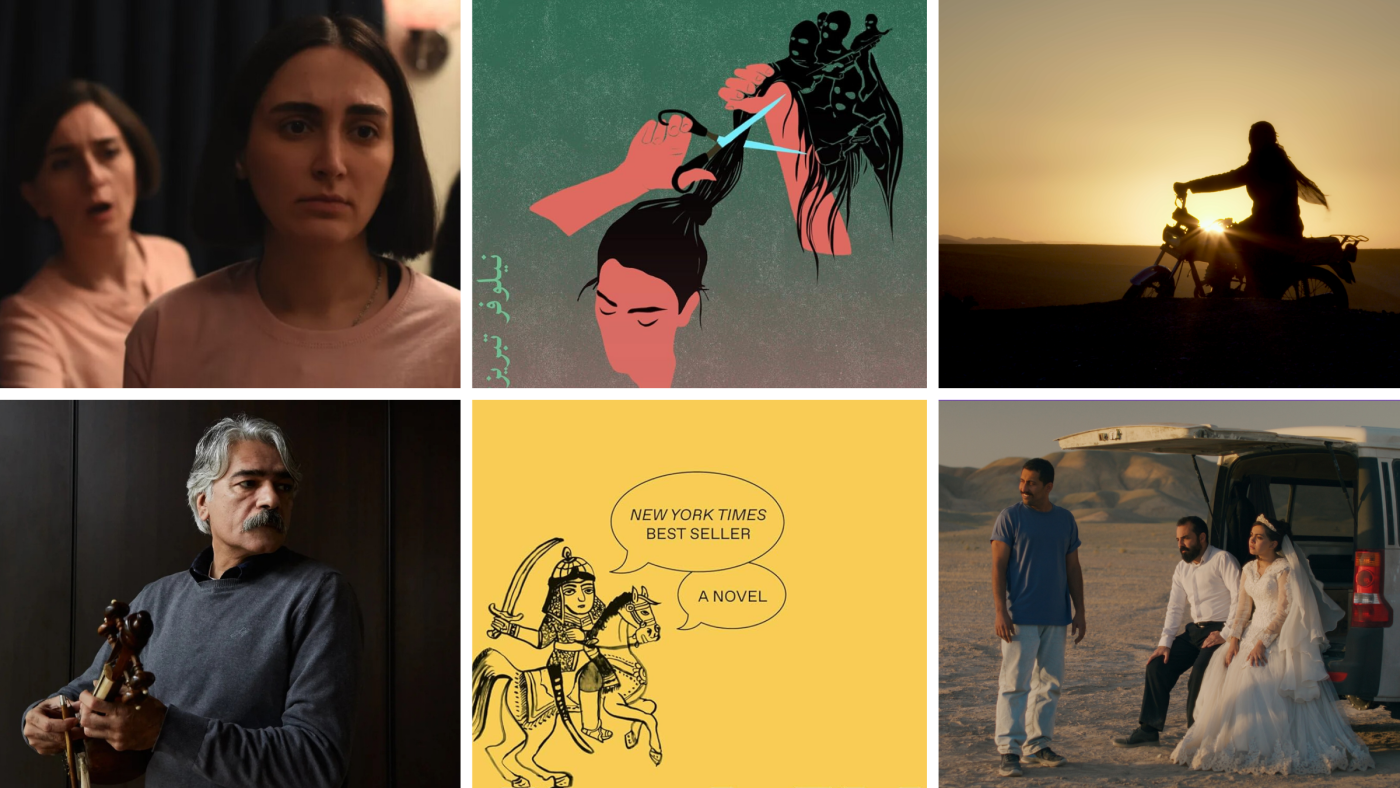
Understanding one of the world’s oldest civilizations can’t be achieved through a single film or book. But recent works of literature, journalism, music and film by Iranians are a powerful starting point. Clockwise from top left: The Seed of the Sacred Fig, For The Sun After Long Nights, Cutting Through Rocks, It Was Just an Accident, Martyr!, and Kayhan Kalhor.
NEON; Pantheon; Gandom Films Production; NEON; Vintage; Julia Gunther for NPR
hide caption
toggle caption
NEON; Pantheon; Gandom Films Production; NEON; Vintage; Julia Gunther for NPR
Few Americans have had the opportunity to visit or explore Iran, an ethnically diverse nation of over 90 million people which has been effectively shut off from the United States since the Iranian revolution of 1979. Now, with a U.S. and Israeli-led war on Iran underway, the ideas, feelings and opinions of Iranians may feel less accessible. However, some recent books, films and music made by artists and journalists in Iran and from the Iranian diaspora can help illuminate this ancient culture and its contemporary politics.
These suggestions are just a starting point, of course — with an emphasis on recent works made by Iranians themselves, rather than by outsiders looking in.
Books
For the Sun After Long Nights: The Story of Iran’s Women-Led Uprising, by Fatemeh Jamalpour and Nilo Tabrizy
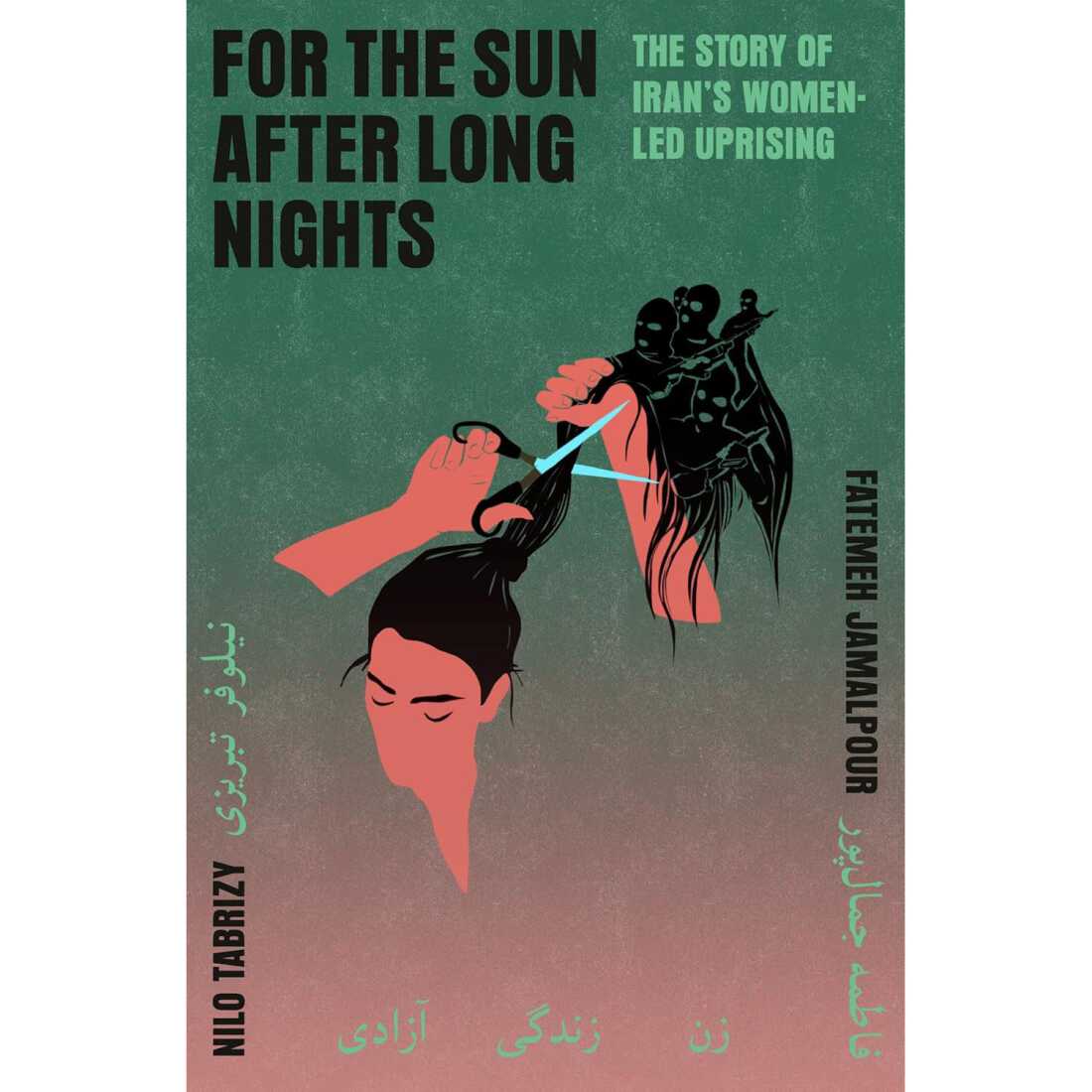
There are quite a few excellent titles that deconstruct the history of Iran from ancient times through the rule of the Pahlavi Dynasty to the Iranian Revolution. But there are far fewer books that help us understand the Iran of 2026 and the people who live there now. One standout is the National Book Award-nominated For the Sun After Long Nights: The Story of Iran’s Women-Led Uprising by journalists Fatemeh Jamalpour and Nilo Tabrizy, which chronicles — almost in real time — the Woman, Life, Freedom movement that began in 2022, during which Jamalpour was working secretly as a journalist in Tehran. In 2024-25, Jamalpour (who is now living in exile in the U.S.) and I spent a year together at the University of Michigan’s Knight-Wallace fellowship for journalists; her insights into contemporary Iran are among the best.
Gold, by Rumi, translated by Haleh Liza Gafori

If Americans are familiar with Persian poetry at all, it may well be through popular “translations” of the 13th-century Sufi poet Jalaluddin Rumi done by the late American poet Coleman Barks, who neither read nor spoke the Persian language and detached the works of Molana (“our master”), as Iranians call him, of references to Islam. (Instead, Barks “interpreted” preexisting English translations.)
In 2022, Iranian-American poet, performance artist and singer Haleh Liza Gafori offered the first volume of a corrective, in the form of fresh Rumi translations that are at once accessible, deeply contemplative and immediate. A second volume, Water, followed last year.
Martyr!: A Novel, by Kaveh Akbar
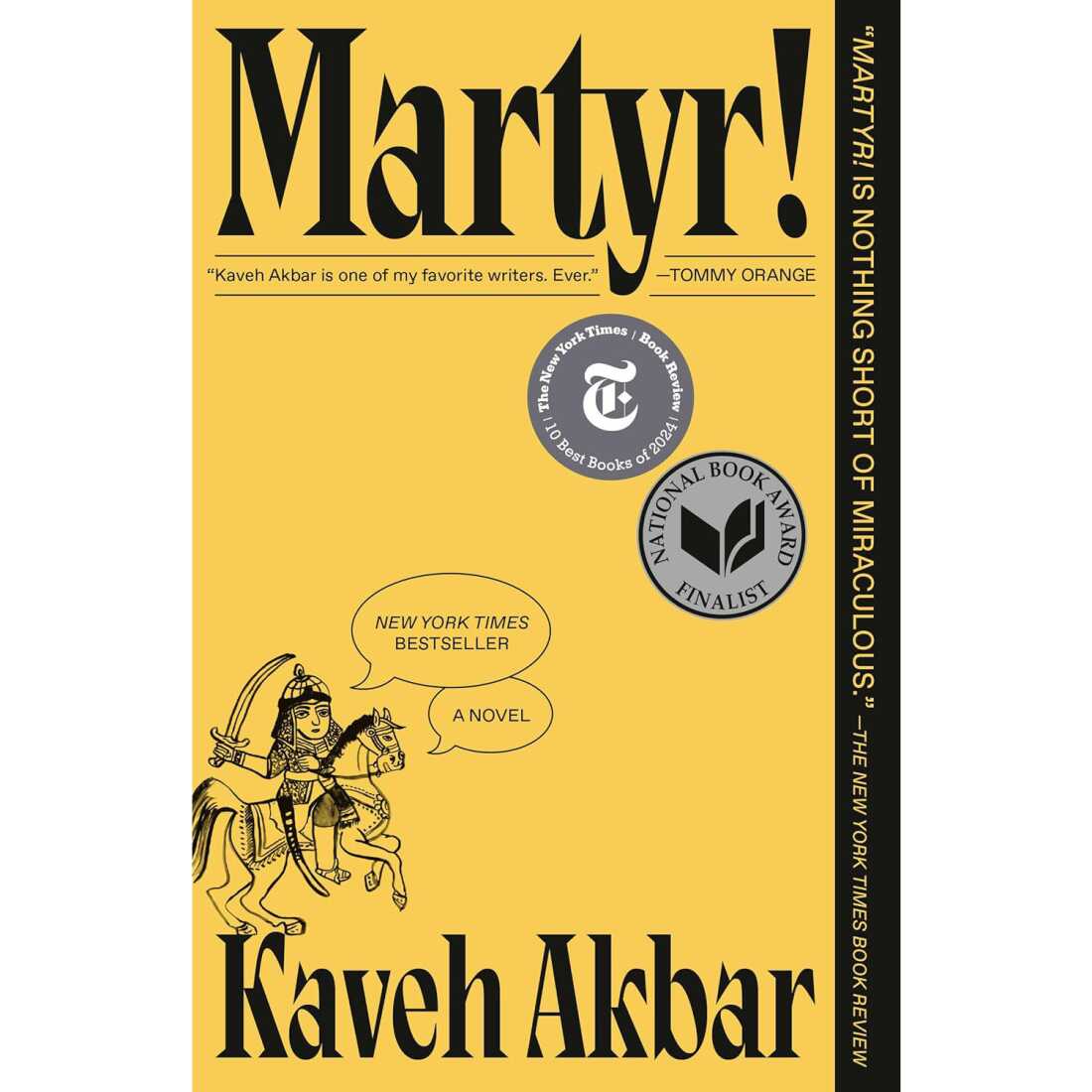
This 2024 debut novel by Kaveh Akbar, the poetry editor at The Nation, is an unflinching tour-de-force bursting with wit and insight into the complications of diaspora, the nature of identity in a post-War on Terror world and the inter-generational impact of the 1979 Revolution on Iranians. The protagonist, the Iran-born but American-raised Cyrus Shams, has struggled with addiction, depression and insomnia his whole life, and is trying his best to make sense of a world at the “intersection of Iranian-ness and Midwestern-ness.” As with so many other of the titles here, fiction and fact are woven together: the story centers around the true story of the U.S. downing an Iranian passenger plane in 1988 during the Iran-Iraq war.
The Stationery Shop: A Novel, by Marjan Kamali
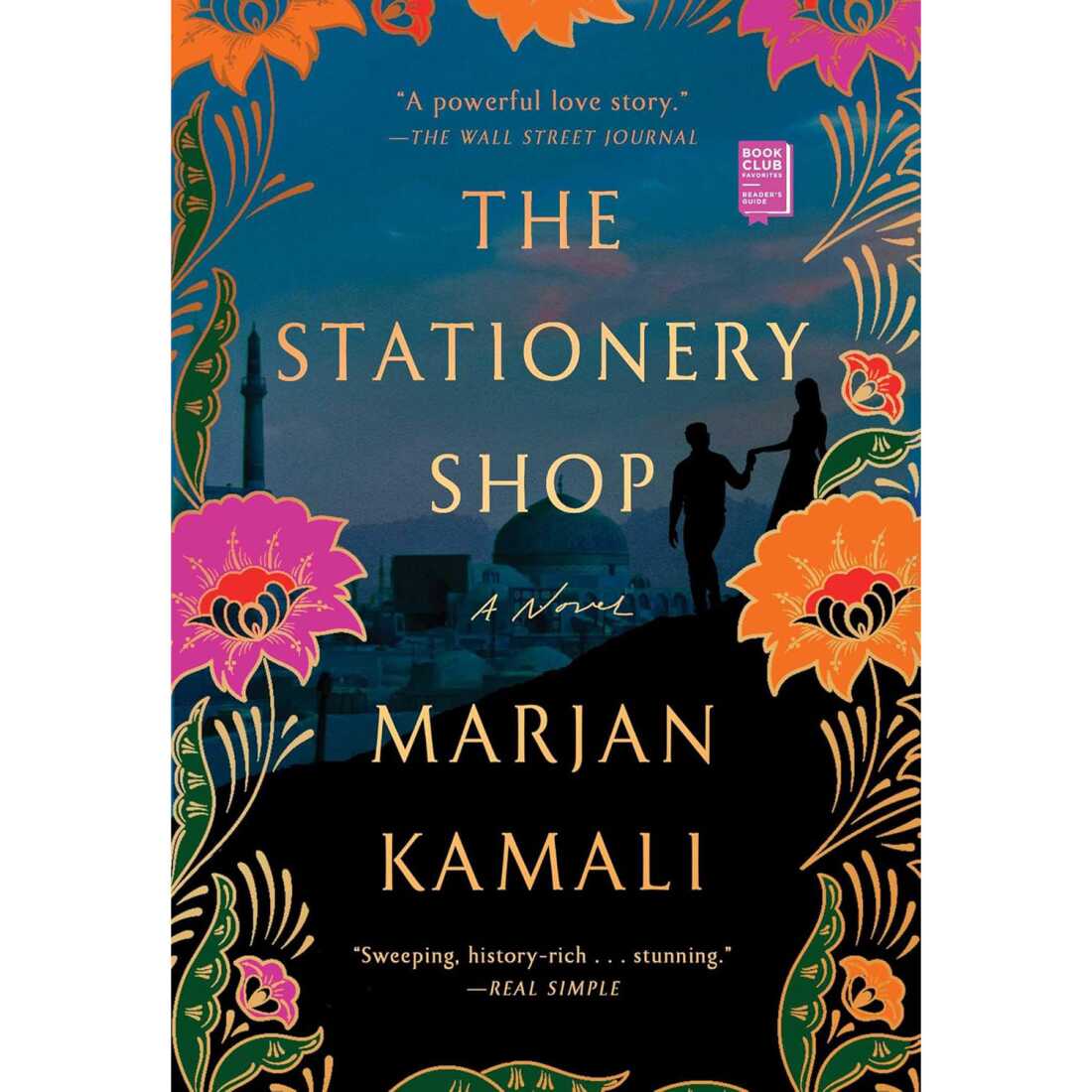
Marjan Kamali’s 2019 love story is the wistful tale of a young woman named Roya and an idealistic activist named Bahman, who meet cute in a Tehran store in the 1950s, but whose planned marriage falls apart due to turmoil both familial and political, as Iran’s democratically elected government falls in a U.S.-British lead coup that ends with the installation of the Shah. Roya flees to the U.S. for a fresh start, but the two reunite in 2013, wondering: what if life had spun out in a different direction?
Movies
Coup 53
This 2019 documentary directed by Iranian film maker Taghi Amirani and co-written by Walter Murch recounts Operation Ajax, in which the CIA and Britain’s MI6 engineered the removal of Mohammad Mossadegh, Iran’s democratically elected prime minister, and installed a friendly ruler, Shah Mohammad Reza Pahlavi, in his place. (The Shah was ousted in the 1979 revolution.) As Fresh Air critic John Powers noted in his review, “What emerges first is the backstory of the coup, which like so much in the modern Middle East is predicated on oil. Shortly after the black gold was discovered in early 20th century Iran, a British oil company now known as BP locked up a sweetheart deal for its exploitation. Iran not only got a mere 16% of the oil money before British taxes, but the books were kept by the British — and the Iranians weren’t allowed to see them.”
YouTube
Cutting Through Rocks
Sara Khaki and Mohammadreza Eyni’s film Cutting Through Rocks is up for an Oscar this season after premiering at the 2025 Sundance Film Festival. This inspiring documentary follows Sara Shahverdi — a divorced, childless motorcyclist — as she campaigns to become the first woman elected to the city council of her remote village, and who dreams of teaching girls to ride and to end child marriage.
YouTube
It Was Just an Accident
The latest film from acclaimed director Jafar Panahi — who has officially been banned from making films in Iran — is 2025’s It Was Just an Accident. Panahi, who has been jailed multiple times for his work and was recently sentenced again in absentia, has said in interviews that his inspiration for this brutal – and shockingly funny – thriller was people he met while in prison: an auto mechanic named Vahid finds himself face-to-face with the man who he is fairly certain was his torturer in jail, and eventually assembles other victims to try to confirm his suspicions. Fresh Air critic Justin Chang called It Was Just an Accident “a blast of pure anti-authoritarian rage.”
YouTube
The Seed of the Sacred Fig
This 2024 thriller — shot in secret by director Mohammad Rasoulof — centers on a family whose father, Iman, is appointed as an investigating judge in Tehran. But it soon becomes clear that his job has nothing to do with actually investigating. Iman, his wife, and two daughters come to suspect each other in our age of mass surveillance, as the city streets below erupt into the real-life Woman, Life, Freedom protests.
YouTube
Music
Kayhan Kalhor
One of the primary ambassadors of Persian classical music has been the composer and kamancheh (an Iranian bowed-instrument) virtuoso Kayhan Kalhor. Although music, like poetry, has been central to Iranian culture for centuries, all kinds of music were initially banned after the 1979 revolution. Since then, however, Iranian classical musicians have ridden many looping cycles of official condemnation, grudging tolerance, censorship and attempts at co-option by the regime.
Despite those difficulties, Kalhor has built a thriving career both inside Iran and abroad, including winning a Grammy Award as part of the Silkroad Ensemble and earning three nominations as a solo artist. Back in 2012, I invited him to our Tiny Desk to perform solo. “Didn’t know I could have goosebumps for 12 minutes straight,” a YouTube commenter recently wrote; I couldn’t put it any better.
YouTube
Saeid Shanbehzadeh
Among Iran’s 92 million people, about 40% of come from various ethnic minorities, including Azeris, Kurds and Armenians among many others. One of the most fascinating communities is the Afro-Iranians in the Iranian south, many of whose ancestors were brought to Iran as enslaved people from east Africa. Multi-instrumentalist and dancer Saeid Shanbehzadeh, who traces his ancestry to Zanzibar, celebrates that heritage with his band, and specializes in the Iranian bagpipe and percussion.
YouTube
The underground metal scene
Despite ongoing restrictions on music — including the continued ban on female singers performing in mixed-gender public settings — Iran is home to a thriving underground scene for metal and punk. Though it’s fictional, Farbod Ardebelli’s 2020 short drama Forbidden to See Us Scream in Tehran — which was secretly filmed in Tehran, with the director giving instructions remotely from the U.S. via WhatsApp — gives a flavor of that real-life scene and the dangers those artists face.
YouTube
-

 World7 days ago
World7 days agoExclusive: DeepSeek withholds latest AI model from US chipmakers including Nvidia, sources say
-

 Massachusetts1 week ago
Massachusetts1 week agoMother and daughter injured in Taunton house explosion
-

 Denver, CO7 days ago
Denver, CO7 days ago10 acres charred, 5 injured in Thornton grass fire, evacuation orders lifted
-

 Louisiana1 week ago
Louisiana1 week agoWildfire near Gum Swamp Road in Livingston Parish now under control; more than 200 acres burned
-

 Florida4 days ago
Florida4 days agoFlorida man rescued after being stuck in shoulder-deep mud for days
-

 Wisconsin3 days ago
Wisconsin3 days agoSetting sail on iceboats across a frozen lake in Wisconsin
-

 Maryland4 days ago
Maryland4 days agoAM showers Sunday in Maryland
-

 Oregon5 days ago
Oregon5 days ago2026 OSAA Oregon Wrestling State Championship Results And Brackets – FloWrestling




















